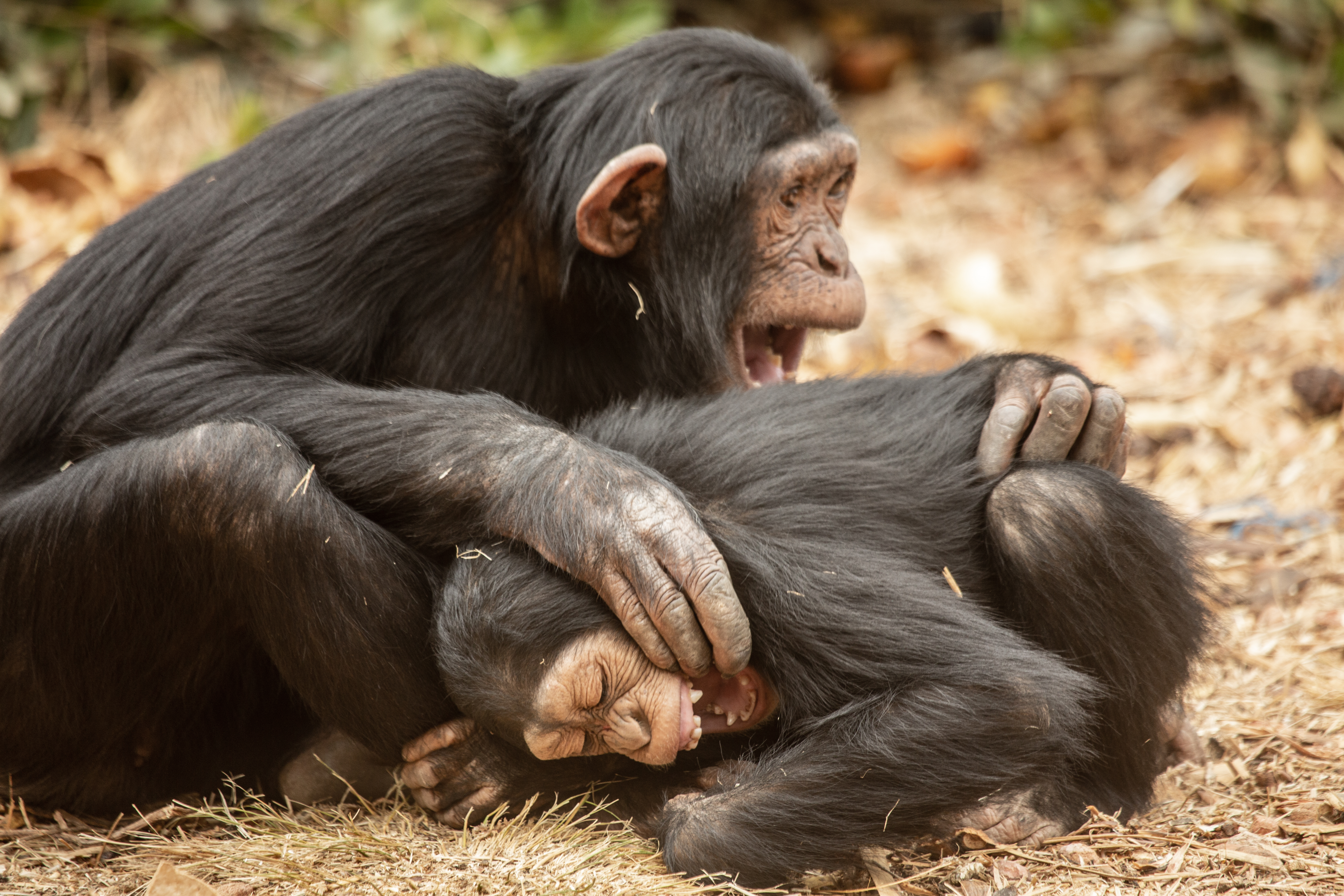News release
From:
Peer-reviewed Observational study Animals
Friendly social behaviors are contagious for chimpanzees
Chimpanzees are more likely to groom or play with each other if they see others do it first
Chimpanzees are more likely to engage in play or groom each other if they see others performing these social behaviors first, Georgia Sandars and colleagues at Durham University, U.K. report in a study publishing November 20, 2024 in the open-access journal PLOS ONE.
Whether it’s yawning or keeping watch for predators, many animals — including primates and ravens — find certain behaviors contagious: after seeing another member of their group performing one of these behaviors, they will instinctively perform it too. This ‘behavioral contagion’ is thought to help animal groups reinforce their social bonds and stay in sync. Chimpanzees’ behavior and emotions can be influenced by those around them, but whether they experience contagion of friendly social behaviors, such as grooming and play, has not previously been investigated.
To address this knowledge gap, researchers observed the behavior of 41 chimpanzees living in a sanctuary in Zambia. They found that chimpanzees of all ages, ranks and sexes displayed contagion of grooming and playful behaviors. Chimpanzees were more likely to find grooming behavior contagious when they observed it in another individual that they had a close relationship with. In contrast, play behavior was more contagious in younger chimpanzees, but this contagion was unaffected by the strength of the social bond.
Behavioral contagion of friendly behaviors like grooming and play may help to strengthen social bonds, the authors say. Play is an important part of social and behavioral development for young chimpanzees, whereas adults tend to build and repair social relationships by grooming each other, which may explain the differences in contagion between the two behaviors. There are several possible explanations for why adult chimpanzees find the behavior of individuals they have a close social relationship with more contagious: they may pay more attention to or be more strongly influenced by their close friends, or seeing a close friend grooming someone else may cause jealousy.
The authors add: “Chimpanzees 'catch' social behavior from each other; they are more likely to start grooming and playing after having just seen others groom and play.”



 International
International



